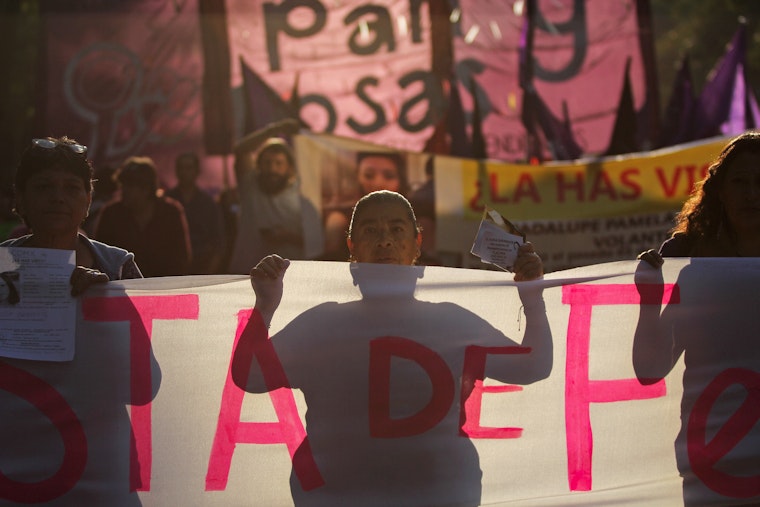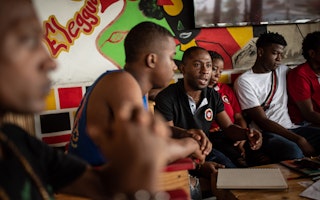Mexico’s #MeToo Moment
By Estefanía Vela Barba

Last month, women in Mexico took to social media to denounce the violence they live in their day-to-day lives, rallying under the banner of #MeToo on Twitter to call out those who perpetuate the mistreatment of women, as well as those that do nothing to stop it.
This form of protest, it must be said, is not new in the country. For years, women have been protesting online and offline against this sort of violence. What does set this latest iteration apart is the fact that, for the first time online, most of the women actually named their aggressors as well as the organizations they work for as responsible.
Further, not only have hundreds of women shared their personal stories, but some have joined forces and created a variety of #MeToo Twitter accounts that serve as amplifiers for their voices. These accounts are generally divided by labor sectors (there are accounts dedicated to writers, artists, or journalists, for instance) or organizations (such as universities) and publish victims’ testimonies. Some of these groups, such as the ones dedicated to writers and journalists, have used this occasion to call on institutions—including the government—to step up.
In this sense, this #MeToo moment is not just about shining light on a problem—gender-based violence against women—and bringing women together; it’s about accountability and reparations as well. For many women, the point is not about showing that this is an issue; they’ve spent years doing that already. The question is, what are the rest of us going to do about it?
Taken altogether, women’s stories reveal at least three urgent conversations that we, as a society, must have.
The first conversation is related to our systems of justice. Many women have been clear on one very important point. Our current systems, particularly criminal law, have failed in dealing with this violence. Statistics bear this out: Most cases for victims who denounce this type of violence—and most victims don’t— see their cases falter in prosecutors’ offices before they ever reach the courts. The chances of obtaining a conviction for this type of behavior are slim.
To be sure, though, it would be wrong to assume that the problem is merely one of insufficient criminal punishment. What many in the #MeToo movement are asking for is something deeper: proper redress. This includes an acknowledgement of the violence they have lived, of course, but it also includes dealing with all the other consequences of the violence—the lost wages, the lost jobs, the lost educations, the lost opportunities, the lost physical and mental health. What mechanisms are in place to guarantee these losses are addressed? And what mechanisms are in place to guarantee that they never happen again?
This is perhaps the most important conversation that can spring from this #MeToo moment, which is about the responsibility of schools and workplaces to prevent violence. In fact and by law, they are responsible—and women are right to hold them accountable.
What is important is to make sure that their responsibility is not limited merely to firing a few “bad apples”; as women’s own stories reveal, the problem goes beyond individuals, because harassment thrives in unequal and arbitrary institutional settings. We need to dramatically rethink how our schools and workplaces operate to secure what is really at stake: guaranteeing to all persons a life free from violence.
Estefanía Vela Barba is a grantee of the Open Society Foundations.
Estefanía Vela Barba is a legal researcher and activist based in Mexico City.


